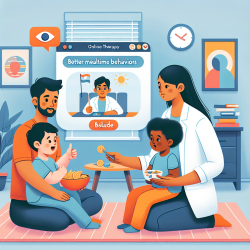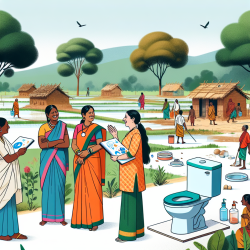Introduction
In the evolving landscape of health professions education, the need for innovative teaching strategies is paramount. Inquiry-Based Learning (IBL) has emerged as a powerful educational approach, fostering critical thinking and curiosity among learners. A recent scoping review titled "Outcomes of inquiry-based learning in health professions education: a scoping review" provides valuable insights into the impact of IBL on health professions trainees. This blog explores how practitioners can leverage these findings to enhance their educational practices and improve outcomes for children through TinyEYE's online therapy services.
Understanding Inquiry-Based Learning
Inquiry-Based Learning is a student-centered approach that encourages learners to formulate questions, explore, and construct knowledge actively. Unlike traditional methods, IBL emphasizes learner-driven exploration and hypothesis generation. The review highlights five phases of IBL:
- Orientation: Introduction of the topic and creation of a problem statement.
- Conceptualization: Development of open questions and hypothesis generation.
- Investigation: Exploration, experimentation, and interpretation of findings.
- Conclusion: Review and reflection on the inquiry process.
- Discussion: Communication of findings and reflection on successes and areas for improvement.
Key Findings from the Scoping Review
The scoping review analyzed 21 studies, revealing significant insights into the outcomes of IBL in health professions education. Key findings include:
- High scores in inquiry behaviors were reported in studies using validated tools, indicating that IBL effectively fosters curiosity and critical thinking.
- Most studies relied on subjective outcomes, such as trainee satisfaction and perceived skill gains, highlighting the need for more objective measures.
- IBL curricula were generally well-received, with trainees expressing positive perceptions of their learning experiences.
Implementing IBL in Practice
For practitioners, integrating IBL into educational practices can be transformative. Here are some actionable steps to consider:
- Embrace Curiosity: Encourage students to ask questions and explore topics that interest them, fostering a climate of curiosity.
- Utilize Validated Tools: Incorporate standardized assessment tools to objectively measure inquiry behaviors and critical thinking skills.
- Facilitate Reflection: Provide opportunities for students to reflect on their learning processes, identifying areas for improvement.
- Collaborate and Share: Engage in collaborative projects and share findings with peers to enhance learning experiences.
Enhancing Outcomes for Children with TinyEYE
At TinyEYE, we are committed to leveraging data-driven insights to enhance outcomes for children. By integrating IBL principles into our online therapy services, we can foster a more engaging and effective learning environment for young learners. Encouraging curiosity and critical thinking in children can lead to improved communication skills and overall development.
Conclusion
The scoping review underscores the potential of IBL to revolutionize health professions education. By embracing inquiry-based approaches, practitioners can cultivate curiosity and critical thinking among learners, ultimately leading to better educational outcomes. As we continue to innovate at TinyEYE, we invite practitioners to explore the full potential of IBL and its impact on child development.
To read the original research paper, please follow this link: Outcomes of inquiry-based learning in health professions education: a scoping review.










